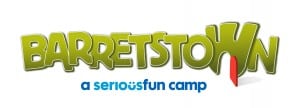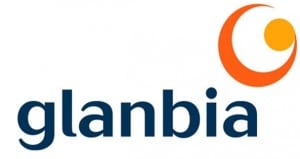
Today, the 2nd of December 2021, marks the 20th anniversary of World Computer Literacy Day. First observed in 2001, this day aims to promote awareness of computer literacy across the globe. Twenty years later, remaining attentive to this issue is as critical as ever.
Economic, social and cultural systems worldwide grow ever more digitized with each passing year. The global economy continues to make strides into what has been dubbed “the Fourth Industrial Revolution”. Fueled by the adoption and integration of digital technologies, digital inclusion across our society is vital to ensure that everyone gets a fair opportunity to engage with their environment on an equal playing field. Ensuring that Ireland is prepared for this revolution will allow the nation to compete effectively on the world stage with other small open economies.
A lack of digital skills continues to be an obstacle to businesses in Ireland and across Europe. In 2020, the World Economic Forum identified that Europe had a shortage of 756,000 ICT professionals.
The domino effect of digital exclusion
The term “digital exclusion” refers to the multitude of socio-economic and cultural factors which contribute to certain groups in society being excluded from the benefits that can be afforded to them through the ongoing digital transformation. In a recent report, the European Commission has identified that fewer than 50% of adults have the digital skills needed for 90% of roles in the future. Compared with our European contemporaries, Ireland is lagging behind. According to a 2020 report by the National Economic and Social Council (NESC), 53% of the Irish population aged 16-74 have only basic digital skills, compared to the EU average of 58%. The NESC report further details how 33% of Irish people aged 65-74 have never used the Internet, compared to 11% of the same demographic in Britain. The negative impact of digital exclusion can also be felt at the business level. A shortage of staff with sufficient ICT skills is hindering the digital transformations of many SMEs nationwide, particularly those in rural areas.
Some of the primary elements contributing to digital exclusion in Ireland are:
- Connectivity.
- Material Access.
- Skills & Confidence.
- Early access to ICT Education.
Connectivity
This refers to actual access to high quality broadband. While mobile data can be useful to individuals for basic communications purposes, a high speed broadband connection is a key tool to enable personal ongoing digital education as well as facilitating commerce. There remains a significant access gap in terms of average broadband speeds in Ireland between the Greater Dublin Region and the Border Counties, Midlands and West (BMW).
Material Access
Income inequality contributes tremendously to disparate material access in society i.e. a person’s level of access to ICT equipment. According to the NESC report, for many people on a lower level of income, their only access to internet is through a smartphone device. While useful for basic communication and entertainment purposes, these devices aren’t suitable for developing the basic ICT skills needed to succeed in the modern workforce.
Skills & Confidence
Most essential components of literacy, such as reading and writing, need only be learned once during one’s early years. When learned, they require no refresher courses. ICT Literacy is unique in this regard. Ensuring that one’s ICT skill set is suitable for the modern workforce requires consistent learning and growth, much of which is self-guided. For those who came to ICT late in life they can find themselves in the oftentimes daunting prospect of constantly playing the “catch-up” game. This leads to certain groups, particularly in the older cohort, having both a lower level of confidence in their own ICT skills as well as a higher level of distrust in the digital sphere. This can unfortunately lead to a catch 22 scenario; people with a higher level of mistrust of digital channels are less likely to use them, while those who are less digitally active are more likely to fall victim of digital scams.
Early access to ICT Education
To ensure an ICT capable population free from the negative ramifications of digital exclusion it is important that ICT skills development are given a priority at every education stage. Not only will this provide individuals with the pre-requisite skills needed to engage with the workforce at large, it will also foster a growing interest in the STEM fields (Science, Technology, Engineering and Mathematics). At Datapac, we strongly believe collaboration between the education and technology sector is essential to closing the IT skills gap which exists in Ireland today. That’s why – way back in in 2004 – we took the lead in this area and began working closely with third-level institutions to provide high quality work placement opportunities for students and graduates. Over this time, we have invested in excess of €1.7 million in supporting the initiative and over 200 individuals have successfully passed through our doors. We have established strong links with a number of leading third level institutions around the country, including Waterford IT, IT Carlow, University of Limerick and NUIG.
To address the root of talent development, we need to engage with students long before they reach third-level education and encourage more young people to choose technology related programmes when it comes to their CAO application. Following the success of the work placement programme, we took the decision to extend the programme into secondary schools and Transition Year classes in particular. We strongly feel that it is important to address digital exclusion as early as possible. Without intervention, the gap between the “haves” and “have nots” will only continue to deepen.
Follow us on Twitter and LinkedIn to stay updated.
Register for upcoming events
-
 "At Barretstown, we rebuild the lives of children, and their families, affected by childhood cancer and other serious illnesses. We serve 5,000 campers a year and have 1200 volunteers each year. Communication is crucially important and Datapac has helped us to streamline, improve and ensure efficiency."
"At Barretstown, we rebuild the lives of children, and their families, affected by childhood cancer and other serious illnesses. We serve 5,000 campers a year and have 1200 volunteers each year. Communication is crucially important and Datapac has helped us to streamline, improve and ensure efficiency." -
 "Datapac has provided us with a fantastic product and world-class levels of service and support. Whenever people ask me about our experience with Datapac I’m always ready to sing their praises and I would happily recommend their services to any organisation."
"Datapac has provided us with a fantastic product and world-class levels of service and support. Whenever people ask me about our experience with Datapac I’m always ready to sing their praises and I would happily recommend their services to any organisation." -
 "For many years Datapac has been our sole supplier for the maintenance of Personal Computers and Peripherals in Ireland. Through their Service Centres in Wexford and Dublin, Datapac provides excellent support to our businesses throughout the country and consistently meets the SLA targets which we have set. The skill, expertise and experience of their engineers and other technical support personnel are of the highest standard."
"For many years Datapac has been our sole supplier for the maintenance of Personal Computers and Peripherals in Ireland. Through their Service Centres in Wexford and Dublin, Datapac provides excellent support to our businesses throughout the country and consistently meets the SLA targets which we have set. The skill, expertise and experience of their engineers and other technical support personnel are of the highest standard." -
 “The value of dealing with an HP Gold partner in this process can’t be underestimated. Datapac provide us with a local touch and can cover the full range of our IT requirements, but when there is a specific technical requirement like this, they can bring the specialist technical resources of HP to the table. HP and Datapac had a thorough discussion with us around our requirement - and had really done their homework - and then were able to provide us with a very highly specified test platform for us to prove the application on before we committed to purchase.”
“The value of dealing with an HP Gold partner in this process can’t be underestimated. Datapac provide us with a local touch and can cover the full range of our IT requirements, but when there is a specific technical requirement like this, they can bring the specialist technical resources of HP to the table. HP and Datapac had a thorough discussion with us around our requirement - and had really done their homework - and then were able to provide us with a very highly specified test platform for us to prove the application on before we committed to purchase.” -
 Datapac understands our needs and requirements and has the expertise and experience to follow through on all our requests. Our constant need to reduce costs has been assisted by Datapac's ability to suggest alternative solutions and methods whilst improving both efficiency and productivity. Our partnership with Datapac is akin to having an IT department on site that we simply could not provide ourselves.
Datapac understands our needs and requirements and has the expertise and experience to follow through on all our requests. Our constant need to reduce costs has been assisted by Datapac's ability to suggest alternative solutions and methods whilst improving both efficiency and productivity. Our partnership with Datapac is akin to having an IT department on site that we simply could not provide ourselves.